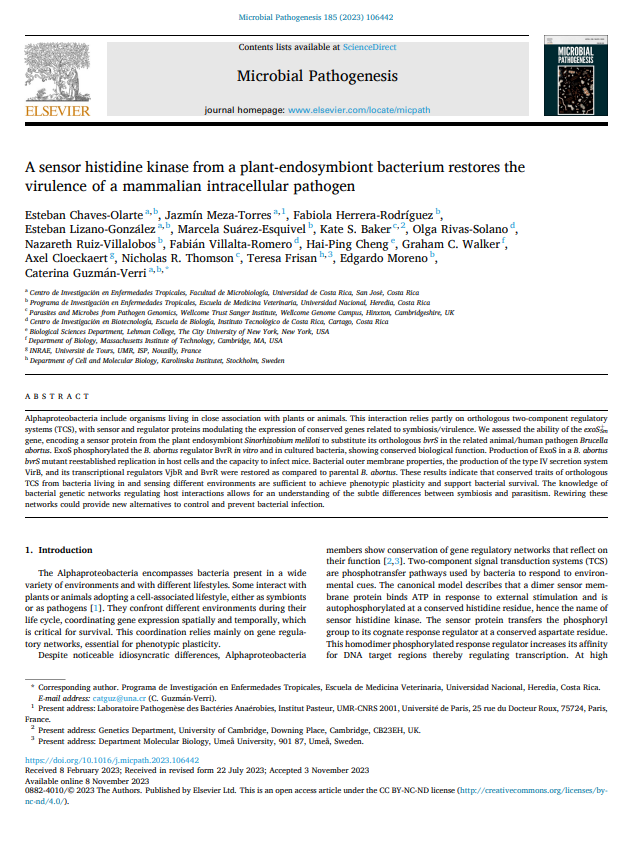Browsing by Author "Baker, Kate S."
Now showing items 1-2 of 2
-
A sensor histidine kinase from a plant-endosymbiont bacterium restores the virulence of a mammalian intracellular pathogen
Chaves-Olarte, Esteban; Meza-Torres, Jazmín; Herrera-Rodríguez, Fabiola; Lizano-González, Esteban; Suárez-Esquivel, Marcela; Baker, Kate S.; Rivas-Solano, Olga; Ruiz-Villalobos, Nazareth; Villalta-Romero, Fabián; Cheng, Hai-Ping; Walkerf, Graham C.; Cloeckaert, Axel; Thomson, Nicholas R.; Frisan, Teresa; Moreno, Edgardo; Guzman-Verri, Caterina (Elsevier, 2023-11-08)Alphaproteobacteria include organisms living in close association with plants or animals. This interaction relies partly on orthologous two-component regulatory systems (TCS), with sensor and regulator proteins modulating ... -
Brucella neotomae infection in humans, Costa Rica
BARQUERO-CALVO, ELIAS; Baker, Kate S.; Amuy, Ernesto; Chaves-Olarte, Esteban; Thomson, Nicholas R.; Moreno, Edgardo; Guzman-Verri, Caterina; Suárez-Esquivel, Marcela; Ruiz-Villalobos, Nazareth; Jiménez-Rojas, César; Chacón-Díaz, Carlos; Víquez-Ruiz, Eunice; Rojas-Campos, Norman; Oviedo-Sánchez, Gerardo (Emerging Infectious Diseases, 2017-06)Several species of Brucella are known to be zoonotic, but B. neotomae infection has been thought to be limited to wood rats. In 2008 and 2011, however, B. neotomae was isolated from cerebrospinal fluid of 2 men with ...


